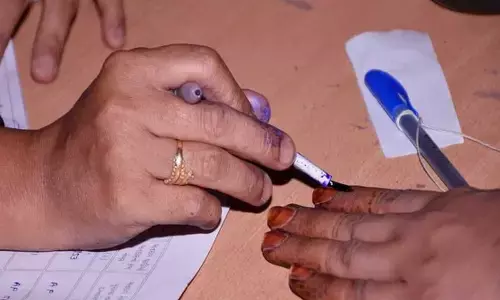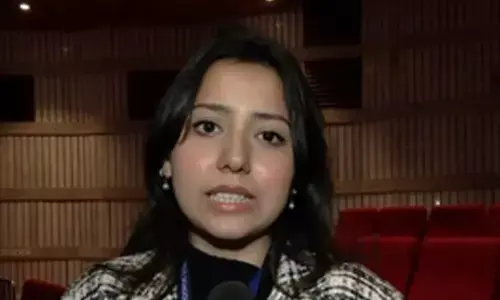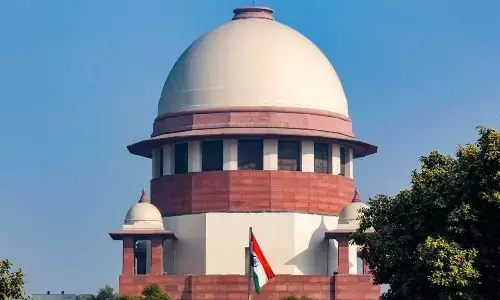Religion & politics: A deadly cocktail
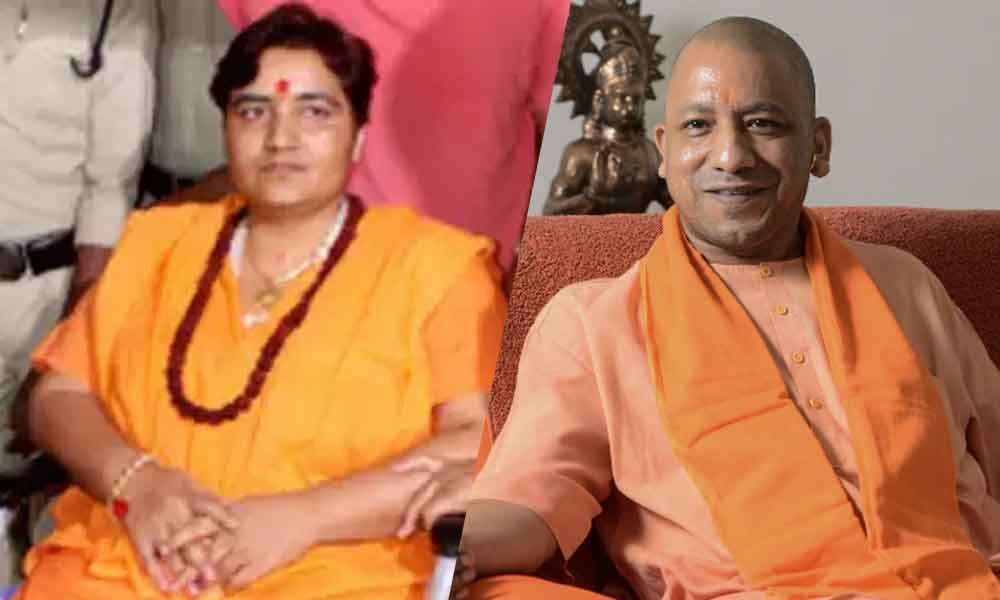
Elections 2019 are witnessing a peculiar political scenario.
Elections 2019 are witnessing a peculiar political scenario. We see some who claim to be spiritualists trying their luck in politics and making controversial statements which have become a matter of concern for the peace-loving common voter.
In fact, time has come when a serious nation-wide debate takes place on whether a spiritual person should join politics or not and if he or she choses to enter the political arena what should be their role.
If someone who claims to be a spiritual person enters into politics, ideally it should help in cleansing the society from various ills including casteism and politics of hatred.
Their influence should be so strong that they should be able to guide the people towards becoming honest and peace-loving.
Spirituality is about seeking a meaningful connection with something bigger than yourself, which can result in positive emotions, such as peace, awe, contentment, gratitude and acceptance.
Spirituality should help in creating a positive state of mind, broaden one's outlook and connect with God in whatever form one looks at him. But what we see today with the entry of some spiritualists turn into politicians is it instigates hatred towards someone you don't agree with.
Lot of hue and cry was raised when Rahul Gandhi said recently that he was a Shiva bhakta. This has drawn a lot of attention from his critics.
After his signature was found in a register for non-Hindus in the Somnath Temple, political parties focussed on his 'non-Hindu status' and made it a rallying point in their election campaign.
But is not religion part of one's personal domain? And can't one choose to follow more than one faith if it suits one? The BJP leaders made best use of social media including twitter to comment on this issue.
It is easy to point a finger at others. But when comments of hate came from within the party (read Sadhvi Pragya), even a couple of hours later, there has not been any reaction from the BJP except saying that the party has nothing to do with and it was her personal opinion.
It is rather a matter of shame. It is this kind of attitude that really causes worry and concern. When such remarks are made publicly as a candidate and not as a Sadhvi, the party should take action and cannot absolve itself from its responsibility. In any party, there should be some code of conduct and some discipline.
The big question that needs to be answered by all political parties is what ideal politics is. Should it have anything to do with a citizen's choice of religion? Should religion be mixed with politics or should it remain with one's private life?
The man on street, if asked, would certainly say that pursuit of religion is for personal transcendence and has nothing to do with the mundane world of politics.
But the 2019 election is witnessing mixing politics with religion on a scale which was more than what it used to be in the past. If the political parties continue to use this as a tool to garner votes and come to power, then the repercussions would be dangerous in the long run.
All religions that profess universal values, are equal and one is free to follow any faith, irrespective of the one you are born into.
MK Gandhi said, "The various religions are like different roads converging on the same point. What difference does it make, if we follow different routes, provided we arrive at the same destination?"
But unfortunately, the Prime Minister himself pleads with people that he should be given one more chance because he was form backward community and a chaiwala turned chowkidar.
This had never happened in the independent India. Never did any Prime Minister bring in the caste factor and seek votes.
There were many occasions when the Opposition had criticised Indira Gandhi. But the iron lady never said that she was being criticised because she was a woman. On the other hand, she used to say 'do not think that because I am a woman I will be soft' and she dealt many issues with an iron hand.
Let's take a look at what his followers say. UP Chief Minister Yogi Adityanath, soon after the end of Election Commission's 72 hours ban on him termed Samajwadi Party (SP) candidate Shafiqur Rahman Barq as 'Babar ki Aulad' (successor of Babar).
"On the one hand, there is a candidate from a party which developed places linked to Baba Bhim Rao Ambedkar and Gautam Buddha. On the other hand, there is an Opposition candidate who calls himself a 'Babar ki Aulad', he said.
Look at another BJP Lok Sabha candidate Sadhvi Pragya Thakur who made a highly controversial statement saying that Hemant Karkare, former Mumbai Anti-Terrorist Squad chief who died during the 26/11 Mumbai terror attack, got what he deserved.
She said the IPS officer died because of his 'karma' referring to his investigation which led to the arrest of Pragya and other Hindutva outfit members.
She alleged that Karkare had apparently said that he did not need evidence against the BJP candidate to prove her crime in court of law. "ATS took me from Surat to Mumbai on October 10, 2008.
I was a hostage for 13 days. Male ATS personnel tortured me a lot during this time. Karkare was cursed by the sannyasis and just 45 days after I went to jail, he was killed by terrorists in 26/11 terror attacks."
"The investigating officers told Karkare to let me go. They said he does not have any proof. But Karkare said that he will do anything, bring evidence against me, but will not let me go."
Pragya, who is facing trial in the 2008 Malegaon blast case, joined the BJP on 17 April and is contesting from the Bhopal Lok Sabha seat and is pitted against Congress veteran Digvijaya Singh.
"I will contest the election from Bhopal and win. Former Chief Minister Shivraj Singh Chouhan is with me," Pragya said.
Fine, win if you can but then, is that the way those who claim to be following the path of spiritualism should speak? Are they trying to spread peace in the country or create trouble?
Once the spiritual persons step into the political arena, their attitude also seems to be changing from peace and nonviolence to politics of vendetta.
In fact, a true spiritualist is one who does not have any hatred or ill will against anyone even if someone causes harm to him.
They would think it is their Karma which they are facing but would not curse anyone. The robes they wear should earn them respect not fear of hatred.
Hence there is a strong case for arguing that politics and religions should not mix as politics need to reflect a common opinion and have to make all decisions keeping in view the mutual benefit of all the people.
If you simply go by the laws in India which is a secular country, then definitely as per it the two things should not be mixed with each other. Politics is about power and a religion is about faith.
Faith can influence power but when power influences faith it can become disaster. Faith always leads to principles and values. Politics is all about having a good time in present life and religion is about having faith for the future times.
There are times when they both run like parallel banks of river which don't meet but always run together.










